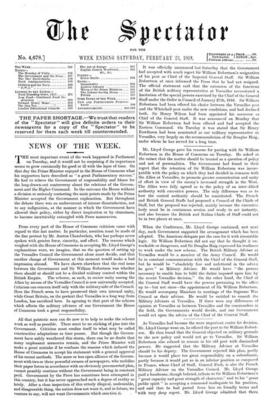When the Conference, Mr. Lloyd George continued, met next day,
each Government suggested the arrangement which has been adopted. The American delegate put the case for it with irresistible logic. Sir William Robertson did not say that he thought it un- workable or dangerous, and Sir Douglas Haig expressed his readiness to work under the new scheme. The British Military Adviser at Versailles would be a member of the Army Council. He would be in constant communication with the Chief of the General Staff, but he would be "absolutely free and unfettered in the advice he gave" as Military Adviser. He would have "the powers necessary to enable him to fulfil the duties imposed upon him by the recent Versailles decision." On the other hand, the Chief of the General Staff would have the powers pertaining to the office up to—but not since—the appointment of Sir William Robertson. He would accompany Ministers to meetings of the Supreme War Council as their adviser. He would be entitled to consult the Military Advisers at Versailles. If there were any differences of opinion at Versailles or between Versailles and the commanders in the field, the Governments would decide, and our Government would act upon the advice of the Chief of the General Staff.


























